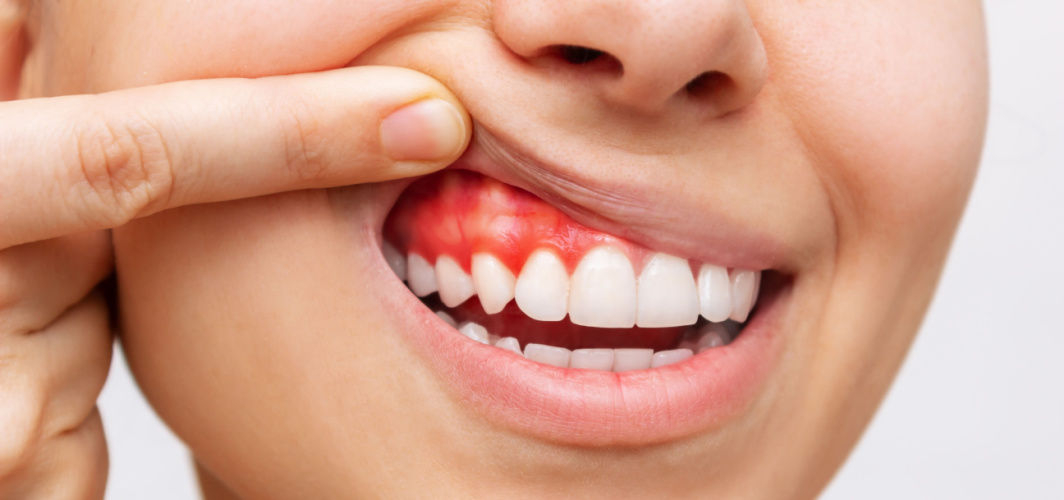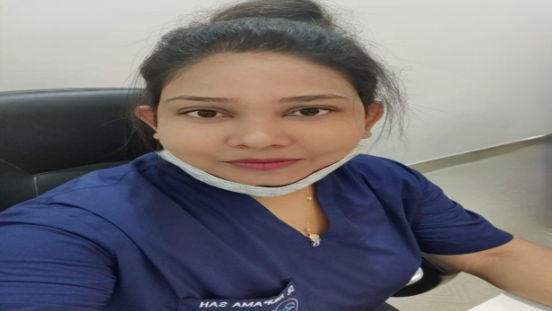General Health
Your Bleeding Gums Can Be A Sign Of Liver Disease! Know How
3 min read
By Apollo 24|7, Published on - 15 March 2023, Updated on - 07 August 2024
Share this article
0
0 like

Gum bleeding is one of the most commonly seen dental diseases. While it usually occurs due to improper brushing, vigorous flossing, or wearing ill-fitted dentures, a recent study shows it can also indicate a serious underlying medical condition such as cirrhosis. Cirrhosis is one of the most severe stages of non-alcoholic fatty liver disease (NAFLD). NAFLD refers to a range of conditions that occur due to fat build-up in the liver. Cirrhosis prevents your liver from filtering out toxins from your body. Let us know more about this condition and how it is related to oral health. 
Relationship Between Oral Health And Fatty Liver Disease
Cirrhosis is directly related to a decreased salivary flow in your mouth. Bleeding, hematoma (a pool of clotted blood in an organ or tissue), jaundice-type mucosa (inner lining of some organs), gum bleeds, and tongue inflammation are some of the symptoms that are mainly attributed to liver dysfunctionalities. However, a thorough diagnostic investigation is required before confirming the diagnosis.
Symptoms And Indicators Of Liver Disease
Signs that may indicate liver disease include:
- Frequent gum bleeding
- Increased heartbeat
- Loss of weight
- Confusion
- Dizziness
- Extreme hair loss
- Jaundice or the yellowing of the skin
How To Diagnose Fatty Liver Disease?
The two main forms of fatty liver diseases include the following:
1. Alcohol-induced fatty liver disease: It is the result of high alcohol consumption and hinders your liver from performing its basic functions.
2. Non-alcoholic fatty liver disease or NAFLD: It includes a range of liver conditions that affect individuals who consume little to no alcohol. The four main stages of non-alcoholic fatty liver disease include the following:
- Steatosis: Simple fatty liver.
- Non-alcoholic steatohepatitis: A more serious form of NAFLD.
- Fibrosis: Persistent inflammation that leads to scar tissue around the liver.
- Cirrhosis: The most severe stage that occurs after several years of inflammation.
Non-alcoholic fatty liver disease is often diagnosed in a blood test that determines liver function.
If a liver function test shows abnormal results, the doctor may recommend the following tests:
- An ultrasound or computed tomography (CT scan) of the liver.
- A liver biopsy is to test how far the disease has progressed.
- A fibro scan can also help determine the amount of fat and scar tissue in your liver.
What Is The Treatment For fatty liver disease?
There is no specific medication that can curb fatty liver. Instead, you can focus on managing the factors that contribute to this condition with the help of your doctor. Usually, lifestyle changes act as the primary contributors to good liver health.
How To Prevent Fatty Liver Disease?
Healthy lifestyle choices can massively improve your condition and prevent you from the risk of developing fatty liver disease. Some effective measures to prevent fatty liver disease include the following:
1. Adopting a healthy diet: A plant-based diet rich in fruits, vegetables, whole grains and healthy fats can be extremely beneficial towards maintaining good liver health.
2. Maintaining a good body weight: Obesity can act as a catalyst and worsen your liver health. Try reducing your weight through regular exercise and limited calorie intake.
3. Limiting alcohol consumption: You should abstain from alcohol consumption if you are suffering from fatty liver disease.
You should consider gum bleeding as a warning to help you avoid further liver complications. Contact your health provider and get yourself diagnosed immediately if you notice blood gushing out of your gums. If you are not experiencing any severe symptoms, follow the aforementioned tips to improve your liver health. For more information,
Consult Apollo's Liver Experts
Medically reviewed by Dr Sonia Bhatt.
General Health
Consult Top Dentists
View AllLeave Comment
Recommended for you

General Health
How To Treat Ear Pain In Children
Discover effective ways to treat ear pain in children. Learn about common causes, the latest guidelines, and lifestyle factors that can help alleviate discomfort.

General Health
Using Earbuds To Clean Your Ears? Know How It Can Damage Your Ears
Using earbuds to clean your ears is not recommended because it can push earwax further into the ear canal, disrupt the natural cleaning mechanism of the ears, and lead to earwax blockage. Read on to know how to maintain proper ear hygiene.

General Health
Pale Skin To Brittle Nails: Know The Signs Of Low Iron In Your Blood
Low iron content in the blood is a common issue faced by many adults and children. It is often due to a variety of causes, like an improper diet or poor absorption of iron from food.
Subscribe
Sign up for our free Health Library Daily Newsletter
Get doctor-approved health tips, news, and more.
Visual Stories

Science-backed Home Remedies for Burns and Blisters
Tap to continue exploring
Recommended for you

General Health
How To Treat Ear Pain In Children
Discover effective ways to treat ear pain in children. Learn about common causes, the latest guidelines, and lifestyle factors that can help alleviate discomfort.

General Health
Using Earbuds To Clean Your Ears? Know How It Can Damage Your Ears
Using earbuds to clean your ears is not recommended because it can push earwax further into the ear canal, disrupt the natural cleaning mechanism of the ears, and lead to earwax blockage. Read on to know how to maintain proper ear hygiene.

General Health
Pale Skin To Brittle Nails: Know The Signs Of Low Iron In Your Blood
Low iron content in the blood is a common issue faced by many adults and children. It is often due to a variety of causes, like an improper diet or poor absorption of iron from food.



